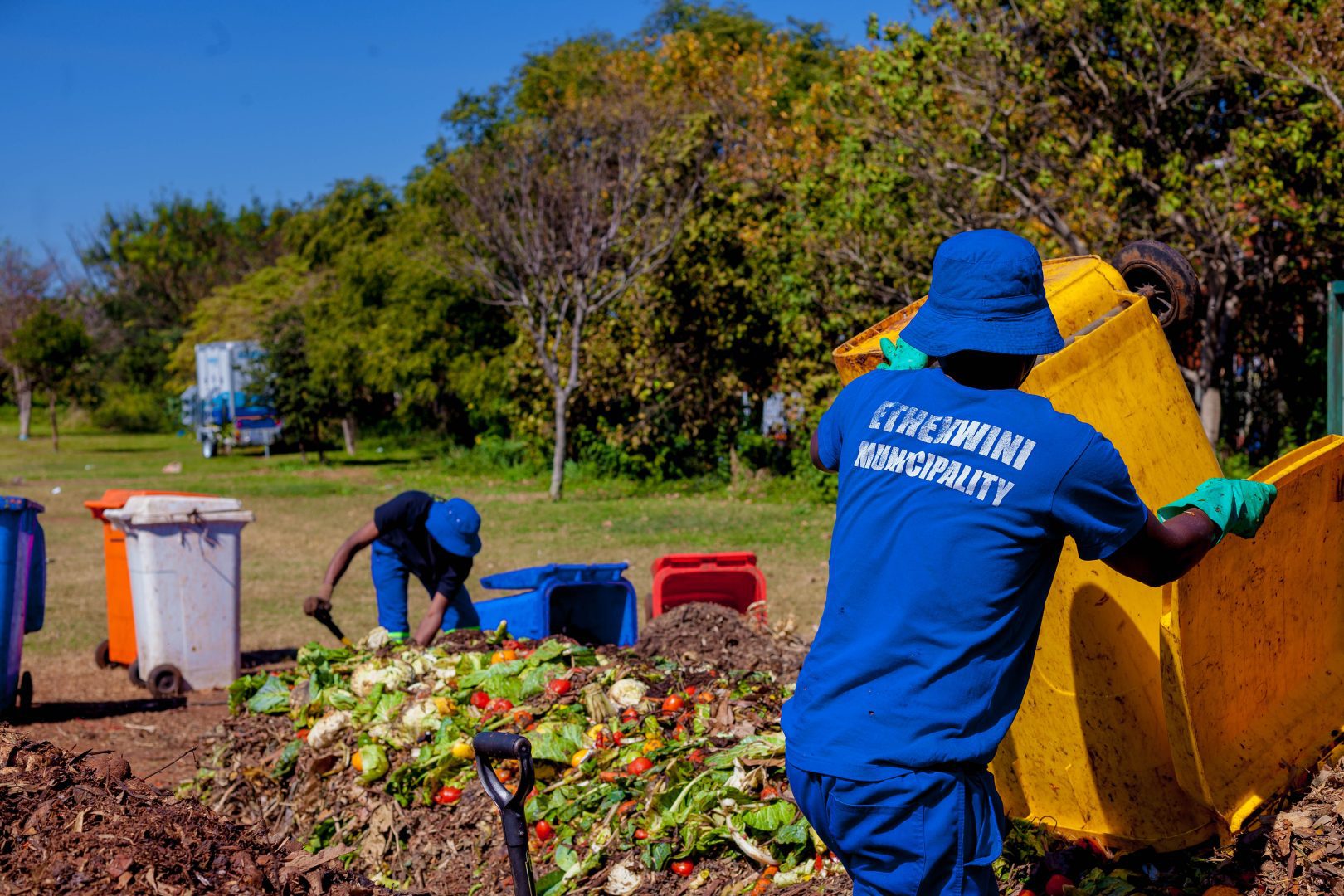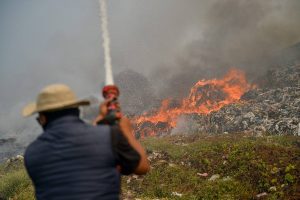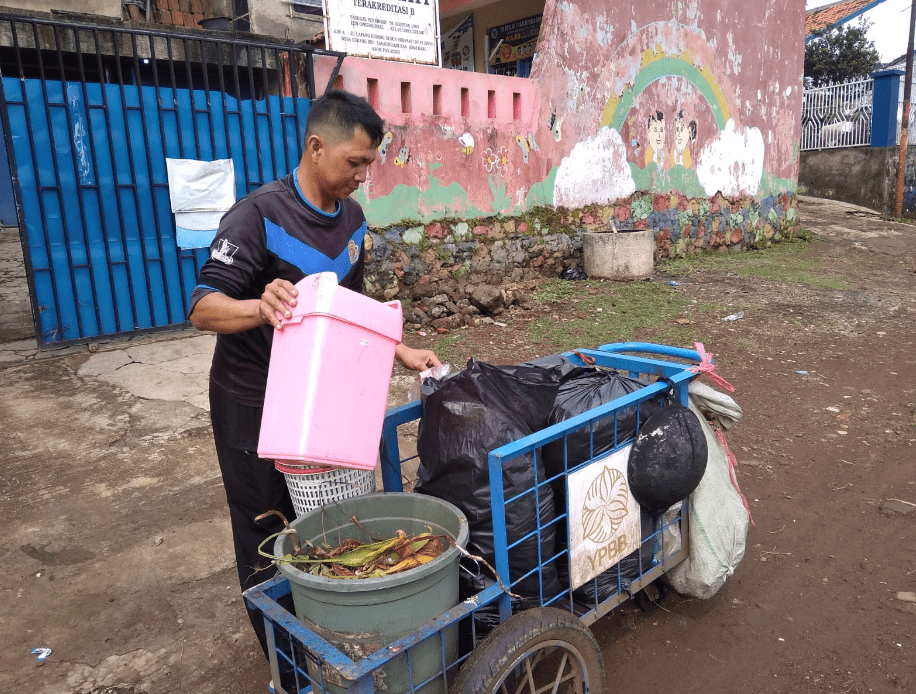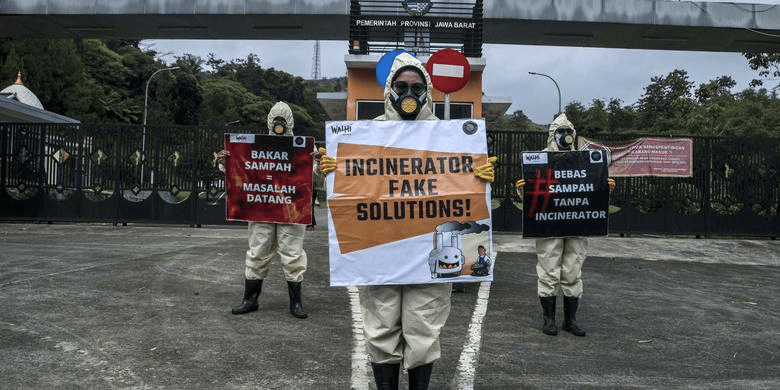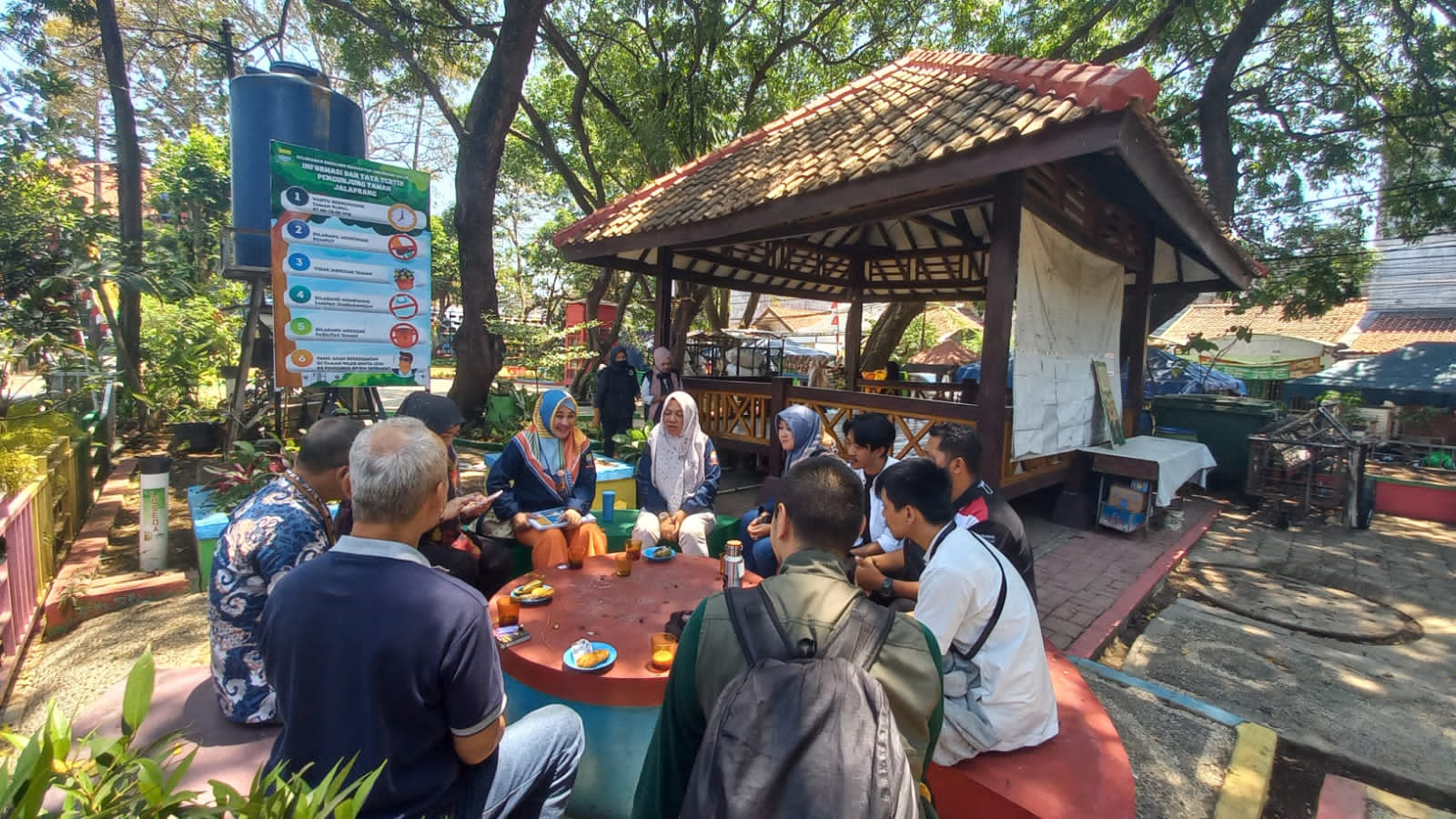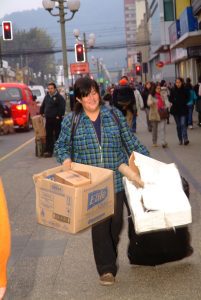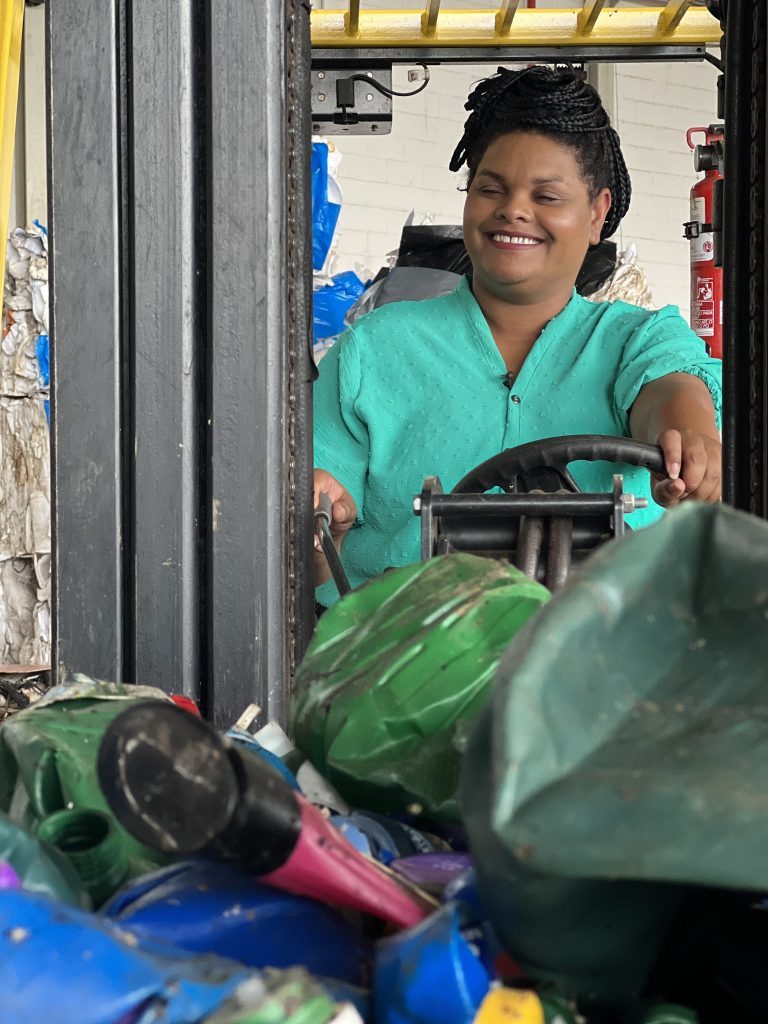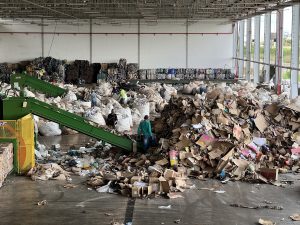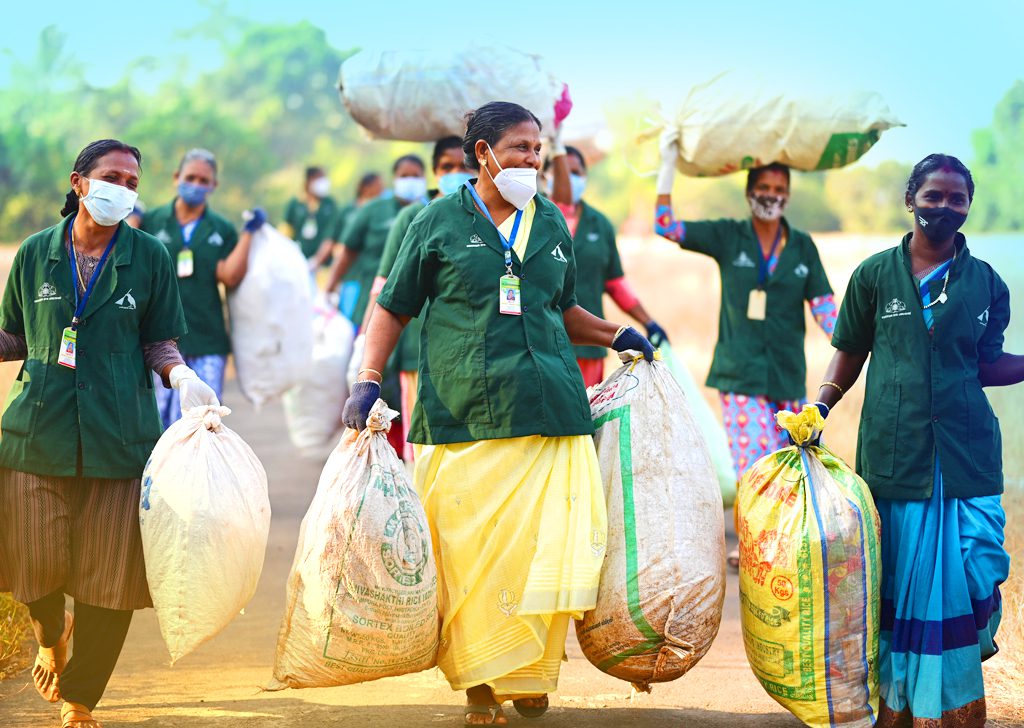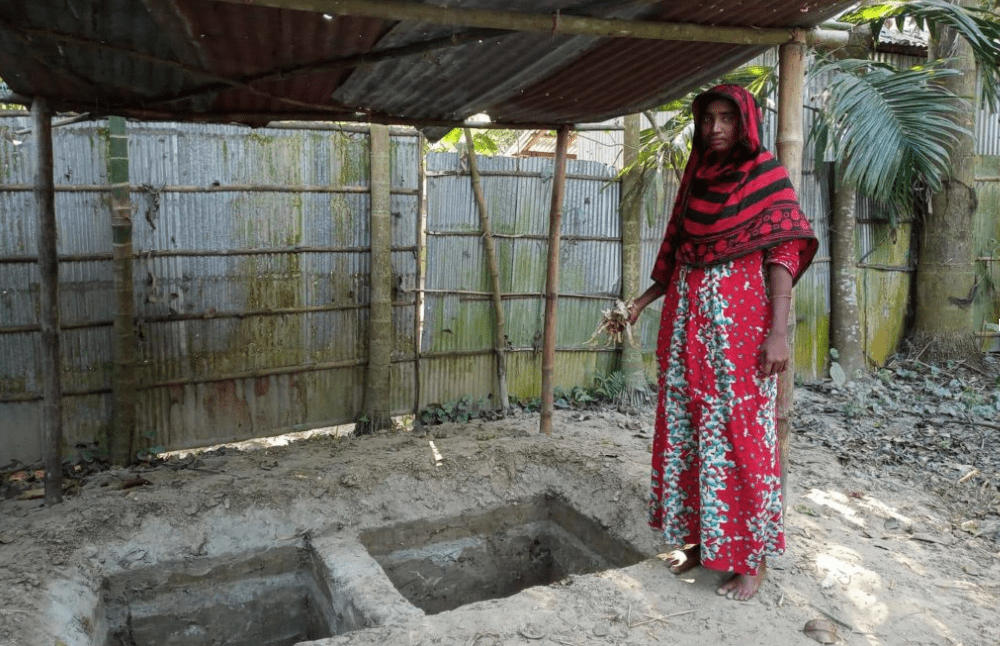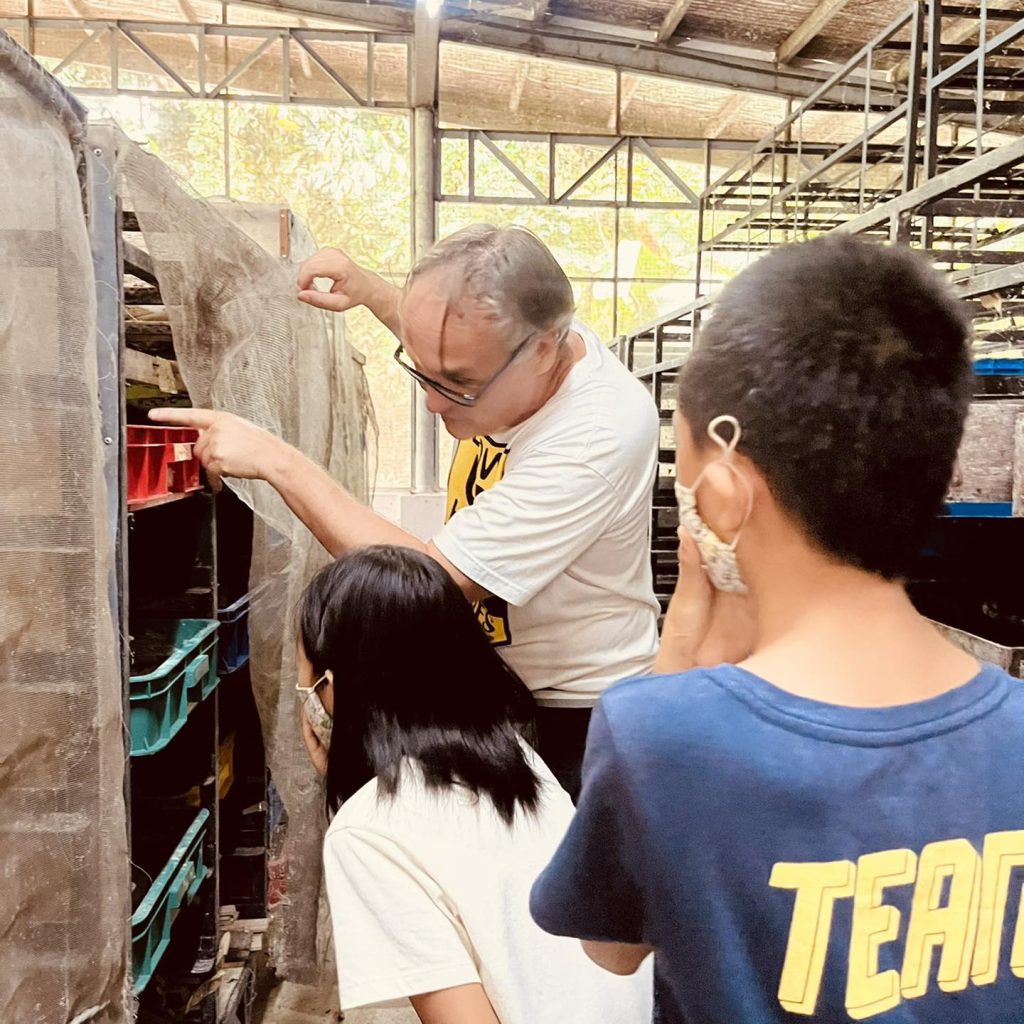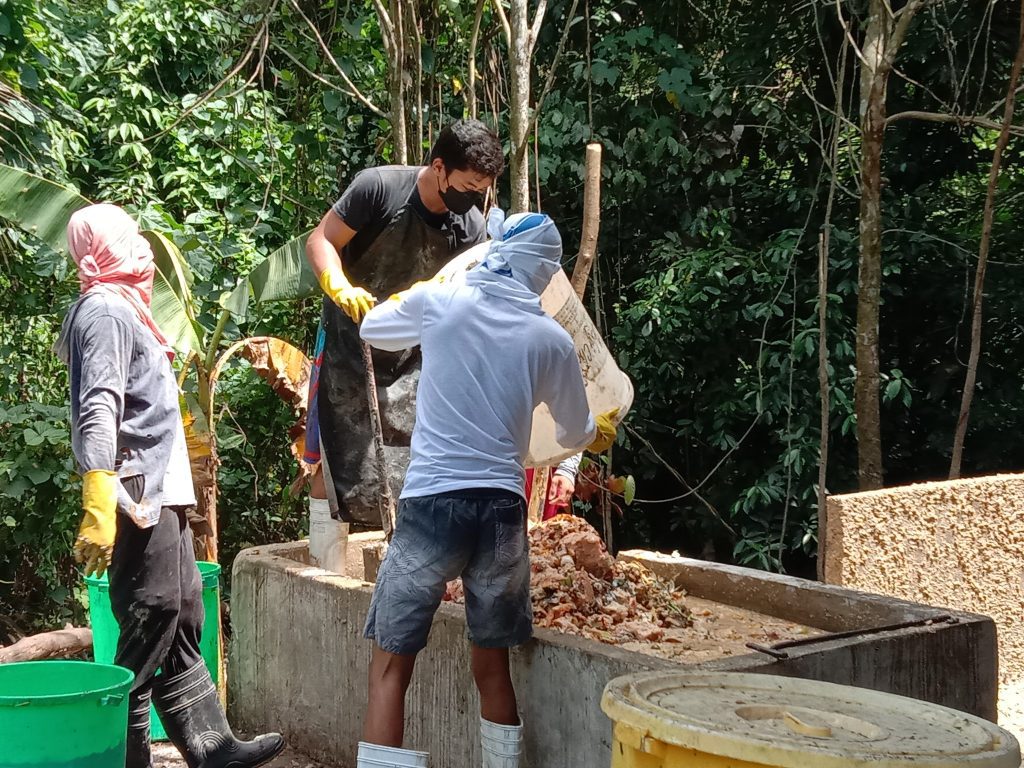A Success Story from the Markets of Warwick
Written by Lily Nobel
Over the last 3 years, the Warwick zero waste composting project has taken food waste from the Early Morning Market (EMM) in the Markets of Warwick (a neighborhood in Durban, South Africa) and transformed it into nutrient-rich compost at the Durban Botanic Gardens. As landfills in South Africa are rapidly filling up, this project showcases the power of utilizing small spaces and limited resources to reduce methane emissions from the waste sector — a greenhouse gas 86 times more potent than carbon dioxide. According to the UNEP’s Global Methane Assessment, reducing methane is a crucial step to keep global warming under 1.5°C, the threshold established by the Paris Agreement.
Currently, this project is being upscaled across the eThekwini Metropolitan Municipality and revolutionizing organic waste management in the area–unlocking resources through saving public funds and creating locally accessible jobs. Empowered by strong partnerships among local organizations, and fueled by effective data collection, this pilot successfully demonstrates the potential of decentralized, environmental justice-centered composting that not only brings climate benefits but also promotes social interests.
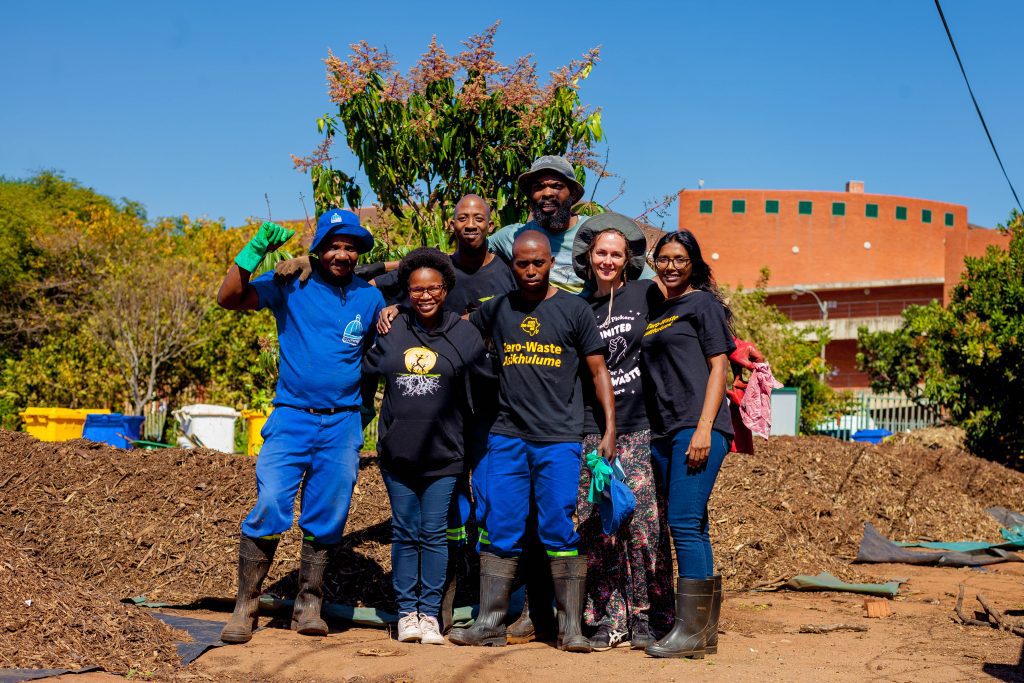
Easily replicable decentralized composting model
In 2022, groundWork, the Durban University of Technology (DUT) Horticulture Department, the eThekwini Municipality Parks, Recreation and Culture Unit (PRC), the Cleansing and Solid Waste Unit (CSW), and the Business Support, Markets, Tourism and Agribusiness Unit (BSMTAU) partnered to launch a composting pilot project in the Durban Botanic Gardens’ permaculture site. It quickly evolved from composting a weekly 240 liter bin of food and vegetable waste to building 12 large compost windrows that are currently maintained to mature compost in a 3-month cycle.

As of March 2024, the pilot has diverted over 72 tonnes of organic waste from landfills by collecting approximately 1.5 tonnes of organic waste from the EMM weekly in two separate collection points and combining this with approximately 1 tonne of garden waste. Since July 2023, the project has supplied over 41 tonnes of compost to the city’s PRC Unit, free of charge, for use in parks and community gardens across the municipality. Samples of the compost undergo regular testing —such as full nutrient analysis, pot trails, and microbial analysis— to refine the ‘recipe’ and to ensure quality control. These tests demonstrate the high quality of the compost produced.
Cost-saving public funds for waste management
While many waste projects often seek investment from external actors, this project utilizes existing resources to unlock significant savings from public funds. By diverting organic waste from landfills, the city reduces the costs associated with landfilling and landfill airspace, which in Durban is estimated to be approximately R1,774 (93 USD) per tonne of waste. The Buffelsdraai and Illovu landfills, the only two operating landfills in Durban, are both located 35 kilometers or more from the city center, leading to high transportation costs. Findings from a cost-benefit analysis report on the project show how the various city departments have the potential to save money from reduced waste management costs and access to free compost. To date, the parks department alone has saved R23,600 (1,250 USD) from compost received through the project. As the project scales up, the savings can be used to sustainably cover the salary of the staff who manage the composters. Unlike waste incineration projects, which require huge capital and operational costs and lock cities in a put-or-pay scheme for decades, this composting model saves the city money, which is then reinvested to rapidly scale the composting model, leading to even bigger savings and opportunities to scale, in a virtuous circle.
Job creation through zero waste
This environmental justice-centered model composting project improves social realities in the area by providing local jobs. On a tonne-for-tonne basis, composting can create three times as many jobs as landfill and incineration. In South Africa, 42.2% of people aged 15-34 years are neither employed, nor enrolled in formal education or training programs as of the last quarter of 2023. As this project is scaled up, composting is estimated to create four jobs per 400 tons of waste processed. The project also improves the working conditions and social protections of the informal market traders, waste collectors, and composters. Moreover, the Warwick zero waste project prioritizes the employment of people from the market and local communities, rather than using machines that often require external experts. In contrast, incineration creates the least amount of jobs and requires workers with highly specialized skills that are not accessible to the local population.

Waste methane reduction for South Africa
Meanwhile, source-separated organic collection with composting demonstrates significantly higher climate mitigation and adaptation benefits. Composting alone can prevent as much as 99% of methane emissions that would otherwise come from landfills. When the finished compost is utilized in place of synthetic fertilizer, further GHG emissions are saved by reducing emissions of nitrous oxide, not to mention avoiding the fossil fuel emissions from creating fertilizer. The application of compost to the soil also boosts flood and drought resistance and increases carbon sequestration capacity.
Although South Africa’s Nationally Determined Contributions (NDCs) provide neither specific targets nor roadmaps for the waste sector, the Warwick zero waste project paves a crucial pathway to help the country improve its national climate goals. By proving the efficacy of decentralized composting projects, the Warwick site can be used as a model for the nation and other countries on how to invest in empowering and inclusive organic management projects powered by local organizations and communities, thereby maximizing municipal resources and local knowledge.
Zero waste markets in Durban and beyond
Currently, the project team and city partners are working on expanding waste collection from the EMM to compost all 400 tonnes of waste generated by the market every year. Alongside this expansion, the team plans to replicate the model in a second market, the Bangladesh Market. In the longer term, the project team is targeting all nine fresh fruit and vegetable markets in Durban, proving the model’s feasibility and efficacy on a larger scale. The project has drawn an increasing interest among other municipalities in South Africa, and the team is actively engaging with government officials across the country and region.

No to incineration, go for zero waste
The cost-saving model demonstrated by the Warwick zero waste project can be upscaled rapidly with the right flow of capacity and resource support. This also means ceasing support for inflexible, costly, and carbon-intensive infrastructures, particularly waste incineration. Policymakers and financiers must ensure that investment in organic waste management projects must be aligned with Environmental Justice principles and inclusive of local organizations and knowledge to build lasting environmental and societal impact.




























